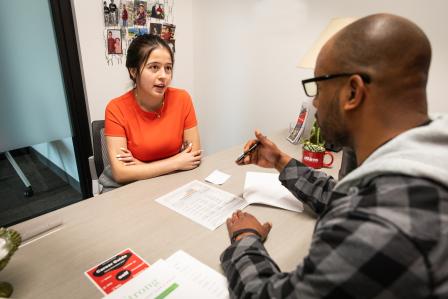 Developing these eight Career Ready Competencies will set you up for success in your career no matter what industry or field you pursue. These skills, experiences and attributes prepare you to transition from college into your work, whether it’s a full-time position, an internship, a fellowship, an entrepreneurial venture or continuing your education beyond Aims. For the rest of your life, this foundation will help you succeed in every job you hold.
Developing these eight Career Ready Competencies will set you up for success in your career no matter what industry or field you pursue. These skills, experiences and attributes prepare you to transition from college into your work, whether it’s a full-time position, an internship, a fellowship, an entrepreneurial venture or continuing your education beyond Aims. For the rest of your life, this foundation will help you succeed in every job you hold.
You can use the Career Ready Tracking Tool to help you:
- Understand the skills you’re expected to develop
- Assess your level of competency in each of the skills
- Communicate the skills clearly in an applied context
Download the Career Ready Tracking Tool to your computer and use it to review, assess, and track your growth in each of the eight competencies. Visit the National Association of Colleges & Employers (NACE) website to learn more about career readiness competencies and how they can help you succeed in your career and life.